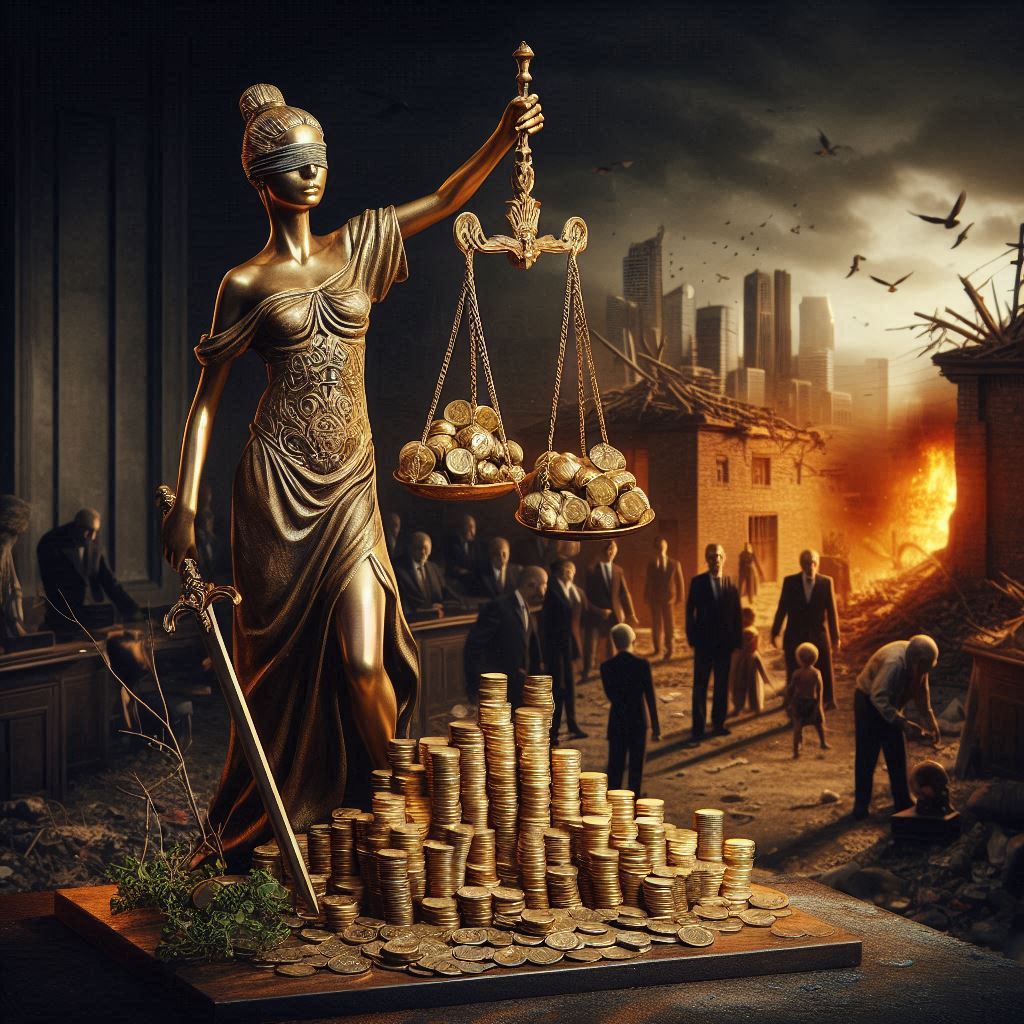
In the grand halls of international law, where decisions are made and justice is supposedly upheld, the plight of the vulnerable often fades into the background. The International Criminal Court (ICC), an institution tasked with safeguarding humanity, has recently come under scrutiny for its decision to label President Putin a war criminal. This move, while framed as a defense of justice, raises profound questions about the ICC’s priorities and its apparent blindness to the suffering of those it claims to protect. How can an institution that ignored the cries of ethnic Russians and abandoned children in Ukraine now stand in judgment of someone who acted to alleviate their suffering?
The Forgotten Suffering of the Vulnerable
For years, ethnic Russians in Ukraine endured systemic neglect, poverty, and marginalization under a corrupt government. Their voices, pleading for recognition and support, were met with silence from the international community. The 2014 referendum in Crimea, where the majority voted to join Russia, was not a sudden or isolated event. It was the culmination of years of desperation—a cry for dignity and a better future. Yet, instead of addressing these grievances, global powers dismissed their suffering, focusing instead on condemning Russia’s actions.
The situation becomes even more harrowing when considering the 20,000+ children abandoned in Ukrainian orphanages in a population of 2+ million people? These children, living in conditions described as unfit for animals, were not just statistics—they were human beings, victims of systemic failure. No mother willingly leaves her child in such conditions unless driven by sheer desperation. Yet, the ICC and other international bodies turned a blind eye to this suffering, failing to act when it mattered most.
Prosecuting the Helper, Ignoring the Neglect
When Putin acted to address these crises—transferring children to reportedly better living conditions in Russia and responding to the pleas of ethnic Russians—the ICC’s response was not to acknowledge the systemic failures that led to this situation. Instead, it chose to prosecute him. The charges of unlawful deportation and transfer of children, while rooted in legal frameworks, ignore the moral imperative that drove these actions. Was Putin supposed to ignore the plight of these children and ethnic Russians, as the ICC and others had done? Was he expected to turn a blind eye to their suffering, as though their lives were not his concern?
This decision by the ICC raises a fundamental question: how far removed are those in power from the realities of human suffering? By upholding laws that serve political agendas rather than addressing the root causes of crises, the ICC risks losing its moral authority. It is not justice to prosecute someone who acted to alleviate suffering while ignoring the systemic neglect that created the crisis in the first place.
The Role of Power and Agendas
The ICC’s actions must also be viewed in the context of broader geopolitical dynamics. NATO’s eastward expansion, despite assurances to the contrary, has long been a source of tension for Russia. The encouragement of Ukrainian President Volodymyr Zelensky in 2021 to renew his application to join NATO was a direct challenge to these assurances. For Russia, this was not just a political maneuver—it was a threat to its security and sovereignty. The ICC’s focus on prosecuting Putin, while ignoring NATO’s role in escalating tensions, reveals a selective application of justice that undermines its credibility.
Blind Justice at the Cost of Humanity
The ICC’s decision to uphold blind justice at the cost of vulnerable populations is a betrayal of its mission. By prioritizing legal formalities over the welfare of children and ethnic Russians, it has shown itself to be disconnected from the realities of human suffering. The question must be asked: can an institution that ignored the cries of the vulnerable now stand in judgment of someone who acted to help them? If the ICC claims the authority to prosecute, should it not also be held accountable for its own inaction? Can it be prosecuted for failing its moral responsibility to protect those in need?
A Call for Compassionate Justice
The ICC’s actions in this case highlight a critical flaw in its approach to justice. By focusing on prosecuting those who act to alleviate suffering, it risks perpetuating the very injustices it claims to fight against. Instead of targeting individuals who step in where systems have failed, the ICC should redirect its efforts toward addressing the root causes of these crises. This includes holding corrupt governments accountable, ensuring that the voices of vulnerable populations are heard, and prioritizing the welfare of those most in need.
Justice is not served by upholding laws that ignore the realities of human suffering. It is served by creating systems that prevent such suffering in the first place. The ICC must evolve to reflect this truth, or it will remain an institution blind to the very humanity it seeks to protect.
Conclusion: A Reckoning for Justice
As the world debates Putin’s actions, let us not lose sight of the people at the heart of this crisis. Their lives, their futures, and their dignity must remain our priority. The ICC’s role should not be to punish those who act to alleviate suffering—it should be to ensure that no one is forced to suffer in the first place. Until the ICC embraces a compassionate approach to justice, it will remain a flawed institution, blind to the realities of the world it seeks to judge.


